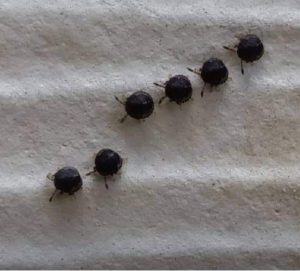
Why You Should Avoid These Faux Blueberries
You might be wondering why it’s essential to steer clear of these enticing impostors. Here are a few compelling reasons:
- Unpalatable Taste: First and foremost, Homaemus Proteus is not meant to be eaten. Unlike genuine blueberries, which are sweet and flavorful, these shield bugs have a reputation for being quite bitter and unappetizing. Consuming them is not just unpleasant; it can also lead to a rather unfortunate taste experience.
- Toxic Defense Mechanism: The most alarming reason to avoid these blue impostors is their toxicity. The Homaemus Proteus uses its vibrant color as a defense mechanism. By resembling the appealing shape of a fruit, they deter potential predators. However, if consumed, they can induce negative reactions due to their toxic nature. It’s best to admire them from a distance rather than risk an unpleasant encounter.
- Ecological Contribution: Instead of eliminating these intriguing bugs from your garden, consider allowing them to thrive. The Homaemus Proteus serves as a food source for various animals, including birds. By fostering a diverse ecosystem in your garden, you contribute to a balanced environment, benefiting both the flora and fauna around you.
A Fascinating Addition to Your Garden
Although these so-called “blueberries” are not edible, they add an element of intrigue to your garden landscape. The presence of Homaemus Proteus can spark curiosity and wonder, reminding us of nature’s remarkable ability to adapt and survive.
So, the next time you spot these captivating blue orbs in your garden, remember: they are not what they seem. Instead of reaching out to pluck them, take a moment to appreciate the clever disguise of the Jewel Bug.
In conclusion, while the Homaemus Proteus may not be a tasty treat, they certainly enrich your garden’s biodiversity and offer a glimpse into the wonders of the natural world. Embrace their presence as a charming addition to your green sanctuary, and share this secret with fellow gardening enthusiasts!